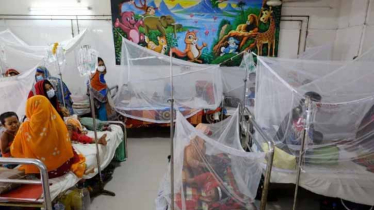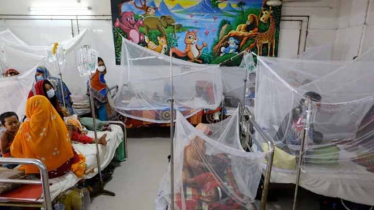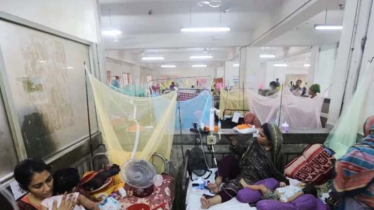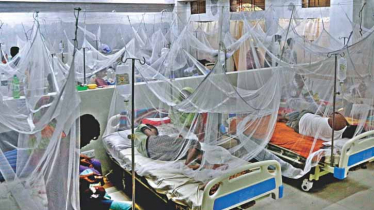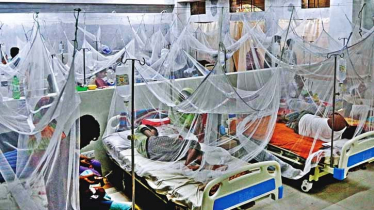
Photo : Collected
As the nation grapples with a surge in dengue cases affecting households across the country, citizens are facing an additional challenge in the form of exorbitant prices of local and imported fruits.
These fruits are increasingly being considered essential for the treatment of dengue and other viral fevers.
Amidst the backdrop of soaring inflation, people are grappling with escalated costs not only for everyday commodities but also for transportation and even mosquito repellent products, amidst the mounting dengue pressure.
Shahana Banu, a concerned relative visiting her nephew, a dengue patient at Islami Bank Hospital in Mirpur 11, was spotted holding two green coconuts, assorted fruits, and food for the patient. She anxiously awaited her brother, Sharafat, who would accompany her to the hospital.
When inquired about the escalating fruit prices, Shahana said, "The prices of fruits are reaching unprecedented heights. Yet, my nephew's condition demands fluids and liquid nourishment as advised by the doctor."
Ajgar Ali, another local resident, shared his experience while at Swapno grocery shop in Mirpur 11. He expressed his intention to buy fruits but ultimately purchased only a small quantity due to the steep costs.
"The prices of foreign fruits are astronomical. I could only manage to buy apples and mandarins, as my daughter has a liking for these," explained Ajgar Ali.
The surge in imported fruit prices is attributed to the ongoing Russian-Ukraine conflict and the subsequent devaluation of the local currency against the dollar. These factors have driven up the cost of importing goods, as highlighted by Serazul Islam, the president of Bangladesh Fresh Fruits Importer Association.
Simultaneously, local fruit prices have also experienced an uptick due to rising transportation expenses, local businesses revealed. However, certain local fruits, including green coconuts, pineapples, and grapefruits, remain reasonably priced. Local fruit enterprises are capitalizing on the prevailing dengue situation.
Notably, green coconuts are currently retailing for Tk 170-180, pineapples for Tk 60, and medium-sized grapefruits for Tk 60, based on observations made at fruit markets in Mirpur-10, Farmgate, and Karwan Bazar areas.
In stark contrast, imported fruits such as apples are commanding a hefty price of Tk 380 per kg, oranges at Tk 480, grapes at Tk 550, and Malta at Tk 400 per kg.
Medical practitioners advise patients to consume a soft diet while consuming ample fluids including fresh juices, soups, coconut water, bananas, papayas, and watermelons. These items are considered crucial for a speedy recovery from dengue fever. Dr. Shamsunnahar Nahid, a Dietician and Nutritionist at Birdem Hospital, emphasized the significance of seasonal fruits containing essential vitamins and minerals, particularly vitamin C, along with the hydrating benefits of coconut water.
Despite a decline in orange imports during this period, oranges remained among the top revenue-generating imported products in FY23. Moreover, apple imports witnessed a substantial 17 per cent growth compared to the previous fiscal year, as reported by the National Board of Revenue's customs department.
The previous year saw the government taking measures to curb the import of over a hundred non-essential goods, including fruits, cosmetics, and furniture. These steps were in response to the disruptions caused by the Russia-Ukraine conflict, which led to disrupted supply chains and escalated global product prices.
According to Bangladesh Customs, over 15.62 lakh tonnes of apples were imported in FY23, surpassing the imports of the previous fiscal year by about 2.3 lakh tonnes.
TDM/SD

